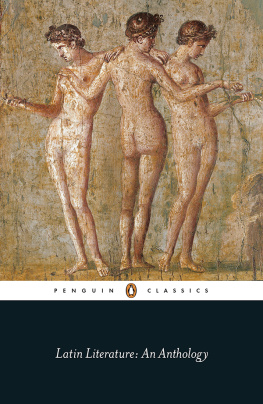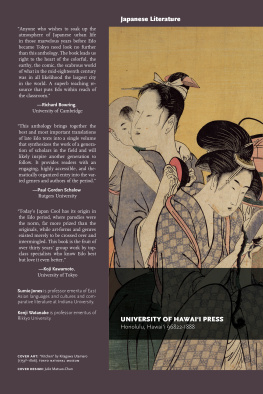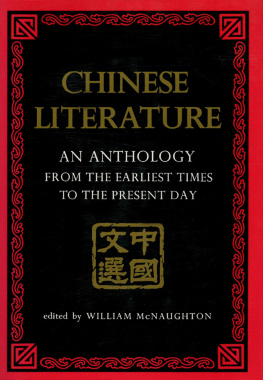Naffis-Sahely - The heart of a stranger: An Anthology of Exile Literature
Here you can read online Naffis-Sahely - The heart of a stranger: An Anthology of Exile Literature full text of the book (entire story) in english for free. Download pdf and epub, get meaning, cover and reviews about this ebook. City: New York, year: 2020;2019, publisher: Pushkin Press;Steerforth Press, genre: History. Description of the work, (preface) as well as reviews are available. Best literature library LitArk.com created for fans of good reading and offers a wide selection of genres:
Romance novel
Science fiction
Adventure
Detective
Science
History
Home and family
Prose
Art
Politics
Computer
Non-fiction
Religion
Business
Children
Humor
Choose a favorite category and find really read worthwhile books. Enjoy immersion in the world of imagination, feel the emotions of the characters or learn something new for yourself, make an fascinating discovery.
- Book:The heart of a stranger: An Anthology of Exile Literature
- Author:
- Publisher:Pushkin Press;Steerforth Press
- Genre:
- Year:2020;2019
- City:New York
- Rating:5 / 5
- Favourites:Add to favourites
- Your mark:
- 100
- 1
- 2
- 3
- 4
- 5
The heart of a stranger: An Anthology of Exile Literature: summary, description and annotation
We offer to read an annotation, description, summary or preface (depends on what the author of the book "The heart of a stranger: An Anthology of Exile Literature" wrote himself). If you haven't found the necessary information about the book — write in the comments, we will try to find it.
Naffis-Sahely: author's other books
Who wrote The heart of a stranger: An Anthology of Exile Literature? Find out the surname, the name of the author of the book and a list of all author's works by series.
The heart of a stranger: An Anthology of Exile Literature — read online for free the complete book (whole text) full work
Below is the text of the book, divided by pages. System saving the place of the last page read, allows you to conveniently read the book "The heart of a stranger: An Anthology of Exile Literature" online for free, without having to search again every time where you left off. Put a bookmark, and you can go to the page where you finished reading at any time.
Font size:
Interval:
Bookmark:
This anthology is dedicated to Sarah Maguire (19572017) poet, translator, friend to exiles

C IVILIZATION BEGETS EXILE; in fact, being banished from ones home lies at the root of our earliest stories, whether human or divine. As the Abrahamic traditions tell us, if disobeying God was our original sin, then exile was our original punishment. In Genesis, Adam and Eve are expelled from the Garden of Eden after eating the forbidden fruit, their return forever barred by a flaming sword and a host of cherubim. Tragedy of course repeats itself when Cain murders his brother Abel and is exiled east of Eden. Genesis also tells us of the Tower of Babel, an edifice tall enough to reach heaven itself, a monument to human hubris whose destruction scattered its people across the earth and confounded our original language, thus making us unintelligible to one another for the first time since creation. The Tanakh, in fact, is rife with exile: Abraham sends Hagar and Ishmael into the wilderness of the Desert of Paran, while the young Moses voluntarily heads into exile after murdering an Egyptian. Genesis and Exodus tell of the captivity of the Israelites in Egypt and their subsequent escape to Sinai, while the Book of Ezra records the end of the Babylonian captivity the inspiration behind Psalm 137s immortal lines, by the rivers of Babylon we sat and wept / when we remembered Zion and the eventual return of the Jews to Israel.
Nevertheless, our religious texts tell us that exile wasnt a fate exclusive to lowly humans. In the Ramayana, the ancient Indian epic, Rama, the Supreme Being of Hinduism, is banished by his father, the Emperor Dasharatha, after falling victim to court intrigues and is ordered to spend fourteen years in exile in the forest of Dandaka, seeking enlightenment amidst demons and wandering holy men. Although Rama is recalled from his exile following his fathers death, he decides to remain in exile for the entire fourteen years. Similarly, in Greek mythology, Hephaestus, the son of Zeus and Hera, is thrown off Mount Olympus by Hera due to his deformities, only to be brought back to Olympus on the back of a mule by the treacherous god of wine, Dionysus. While exile was often a temporary situation for many gods, it was a more permanent state of affairs for their mortal creations.
It was in Babels Mesopotamia, towards the end of the Third Dynasty of Ur, that one of our earliest poetic epics, The Lament for Urim, first depicted the vicious cycle of conquest and expulsion that has largely characterized our history. In The Lament for Urim Ningal, the goddess of reeds, pleads before the great gods: I have been exiled from the city, I can find no rest. Bemoaning the destruction of her beloved Ur by the invading Elamites, Ningal cries out its name:
O city, your name exists
but you have been destroyed.
O city, your wall rises high
but your Land has perished.
Employing the refrain woe is me, Ningal chronicles the annihilation of her world: I am one whose cows have been scattered, My small birds and fowl have flown away, My young men mourn in a desert they do not know. The Sumerian epic ends with a soft, sanguine prayer that Ningals city may one day be restored, unleashing one of our first literary archetypes: the hopeful exile. In fact, if The Lament for Urim is any indication, the very concept of recorded history and literature appears to spring out of the necessity of exile, preserving in our minds what had been bloodily erased on earth.
The ancient Egyptian Return of Sinuhe, written during the Twelfth Dynasty, however, ends on a far happier note. Sinuhe, either a prince or a courtier, depending on the adaptation, flees his native country after an unspecified plot against the throne. Although Sinuhe finds power, wealth and respect in barbaric lands, he cannot quieten the loss that turns all his foreign-won sweetness to ash: Desire disturbed me, and longing beckoned my heart. There appeared before my eyes scenes of the Nile and the luxuriant greenery and heavenly blue sky and the mighty pyramids and the lofty obelisks, and I feared that death would overtake me while I was in a land other than Egypt. Fortunately for Sinuhe, his earnest patriotism wins the pharaohs mercy when he returns to Egypt as an old man and he is welcomed back into the fold, able to die in his unforgettable homeland. This uncharacteristically happy conclusion to an exiles suffering shares some similarities with Lukes Parable of the Prodigal Son, where the spendthrift younger son returns home to his fathers undying love and to the biblical tale of Joseph, who is sold into slavery by his envious brothers, but who then rises to unimaginable heights in Egypt, triggering a series of events that would lead to Moses and the Exodus to the Promised Land, the founding myth of the Israelites. As was written in Exodus 23:9, thou shalt not oppress a stranger: for ye know the heart of a stranger, seeing ye were strangers in the land of Egypt.
While exile has accompanied our every step, and our earliest stories and religious myths are studded with tales of woe and banishment, much has been lost precisely because of exiles oblivion-inducing force. The Greek poet Sappho (c.630c.570 BC ) is perhaps our most famous example. While we know she lived on the island of Lesbos, we do not know what caused her to be exiled to Sicily in her earlier life, and only the tiniest fragments of her reputedly voluminous works have survived. Although exile originally appears to have been the outcome of divine retribution, war or intrigue, it wasnt long before humans began to play god with the concept themselves. Greek literature shows us that exile was the most common form of retribution for murder, and exile therefore shapes the stories of many of Greeces most famous mythical heroes, like Peleus, Perseus, Bellerophon and Patroclus, all of whom were killers cast out of society until such time as they could be readmitted. As society grew more complex, however, exile came to be seen as far more useful than simply a punishment for murder. Aristotles (384322 BC ) Athenian Constitution introduces us to the law of ostracism, whereby the names of powerful men suspected of abusing their political offices were submitted to a public vote. Assembling in the agora, citizens would scratch the name of the intended exile onto shards of broken pottery and the shards would be tallied up. The man with the most pot-shards was subsequently banished. The chosen exile could be sent away permanently or for a period of ten years, at which point they would be welcomed home and their rights duly restored. This practice proved popular enough to spread to the Greek colonies of southern Italy in Magna Graecia. In his Bibliotheca historica, Diodorus Siculus (9030 BC ) mentions the practice of petalism from the Greek word for leaf whereby the citizens of Syracuse wrote the names of the intended exiles on the leaves of olive trees instead of pot-shards.
Regardless of the voting method, this was the way democracys enemies were dealt with: if a man grew rich enough to make tyranny inevitable, he was simply banished. Aside from recognizing wealths inherent tendency to subvert the public interest, the particular wisdom of this law lay in its focus on exiling powerful individuals rather than their poorer, more numerous partisans, who were often allowed to remain in the city even when their leaders were not. Exile thus not only offered an attractive alternative to execution; it simultaneously hindered the widening of existing social rifts. Themistocles (c.524459 BC ) was perhaps the most famous of these ostracized exiles. After building the Athenian fleet into a major force and fighting the Persians at Marathon, Artemisium and Salamis, Themistocles was implicated in a plot involving the Spartan tyrant Pausanias most accounts claim unfairly so and he was subsequently forced to end his days serving the very Persians he had once warred against.
Font size:
Interval:
Bookmark:
Similar books «The heart of a stranger: An Anthology of Exile Literature»
Look at similar books to The heart of a stranger: An Anthology of Exile Literature. We have selected literature similar in name and meaning in the hope of providing readers with more options to find new, interesting, not yet read works.
Discussion, reviews of the book The heart of a stranger: An Anthology of Exile Literature and just readers' own opinions. Leave your comments, write what you think about the work, its meaning or the main characters. Specify what exactly you liked and what you didn't like, and why you think so.










